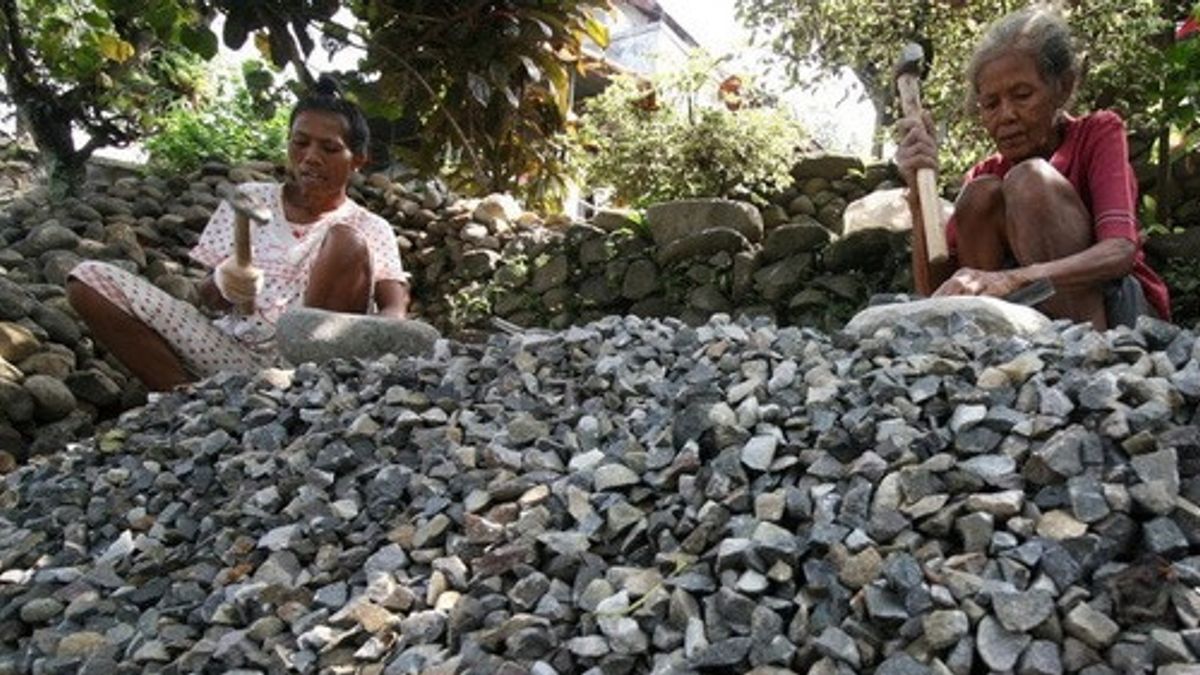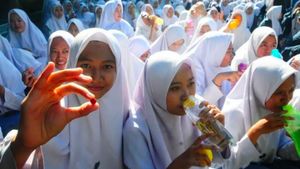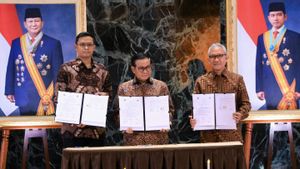JAKARTA – In the midst of the Kartini Day celebration, the road to independence for Indonesian women is still long. Millions of women in the country, with low education, are struggling as the backbone of their families.
The Indonesian people commemorate Kartini Day which is held on April 21 every year. However, in the midst of the splendor of the Kartini Day celebration which is usually enlivened by the use of traditional clothing, there is one problem that is of concern in the current era, namely the increasing number of female breadwinners.
However, even though they support the family economy, female breadwinners often work in the informal sector as individual businesses, which results in minimal social and health protection.
"Reflecting on the ongoing practice of discrimination in a number of sectors, the struggle to realize equality in everyday life must be our shared concern, as RA Kartini has fought for it for hundreds of years," said Deputy Chairperson of the People's Representative Assembly (MPR) Lestari Moerdijat on the official MPR website.

Bearing Full Responsibility
The latest publication from the Central Statistics Agency (BPS) entitled "Statistical Data Stories for Indonesia" released in March 2025 revealed that one in 10 workers or around 14.37 percent of workers in Indonesia are female breadwinners.
By definition, female breadwinners are defined as women who work and receive the largest income, are the main breadwinners, or even the sole breadwinners in the household.
The Journal of Technology and Education Research entitled "Surviving the Challenges of Life: Case Studies on Women as Main Breadwinners" by Sofia Ramadhaniar and Artiawati explains that the term breadwinner in the context of women has long been raised by Mousse.
Women with this role are also referred to as women headed or women maintained, namely women who bear full responsibility for supporting their families.
This concept also reinforces the reality faced by many Indonesian women lately. they not only act as workers, but also protectors and supports for the burden of all their family members.

Back to BPS data on female breadwinners. The same data shows that the elderly group contributes a very large number, namely 17.91 percent of female breadwinners aged 60 years and over. This is the highest number of all age groups. For information, the female population in Indonesia has reached 137.91 million, of which 105 million are aged 15 years and over.
This shows that many women continue to work in their old age for several reasons, such as the absence of a productive partner, minimal pension funds, or basic needs that continue to be pressing.
Another group that contributes the largest portion is in the productive age group of 35-59 years. This figure indicates that the point of double burden is at its peak, between kitchen affairs and office deadlines.
What is of concern is when the phenomenon of female breadwinners is viewed in terms of education. BPS shows that 55.84 percent of female breadwinners have only completed basic education.
It is not that highly educated women are unable to contribute to the economy, but it is more likely that their partners have higher incomes and therefore do not need to be the main breadwinner.
Overlapping Roles of Female Breadwinners
Unfortunately, the high level of economic participation is not accompanied by adequate work protection. In the context of health insurance, according to BPS, as many as 73.42 percent of female breadwinners admitted that they did not have health insurance. Meanwhile, 76.94 percent of female breadwinners also said they did not receive work accident insurance.
In the world of work, women also still have to face gender discrimination, wage gaps, and limited access to stable and decent jobs.
BPS data in February 2024 showed that the average monthly wage for male workers or employees was higher than for women. Women can only pocket a salary of IDR 2.57 million, while men are 28.40 percent higher, at IDR 3.30 million.
In fact, the income of female breadwinners plays an important role in the household economy. The same BPS report shows that around 47.65 percent of them contribute 90-100 percent of the total family income, making them the sole source of income.

Economic work also does not immediately eliminate domestic responsibilities. BPS noted that 84.39 percent of female breadwinners still carry out household activities.
This means that productive work in the public space must overlap with reproductive burdens in the private space. The accumulation of this burden risks reducing women's quality of life, both physically, mentally, and socially.
Lili Retnosari, a young expert statistician at BPS, in her column in Tempo said that by looking at the findings above, it shows that many women enter the labor market not because of their free will, but because they have no other choice. This shows the failure of the wage system to meet basic household needs, which has encouraged women to take over economic functions in full.
According to Lili, as long as the state does not guarantee a living wage for the main breadwinner, women's work will continue to be a survival strategy, not a free choice.
SEE ALSO:
"When one income is not enough to cover basic needs, such as food, housing, education, and health, women's work participation is no longer a form of emancipation, but rather a social responsibility that is silently shifted," Lili wrote.
"Emancipation in this context becomes biased in meaning: not about open space, but about the burden that is forced to be borne in an unequal system," she added.
For this reason, Lili said, the fulfillment of a living wage remains relevant as a family policy agenda. Household welfare should be achieved with one living income so that women have the space to choose, not be forced to choose.
"True emancipation is not about replacing the role of men, but about a fair division of roles supported by an accommodating social system," she concluded.
The English, Chinese, Japanese, Arabic, and French versions are automatically generated by the AI. So there may still be inaccuracies in translating, please always see Indonesian as our main language. (system supported by DigitalSiber.id)


















